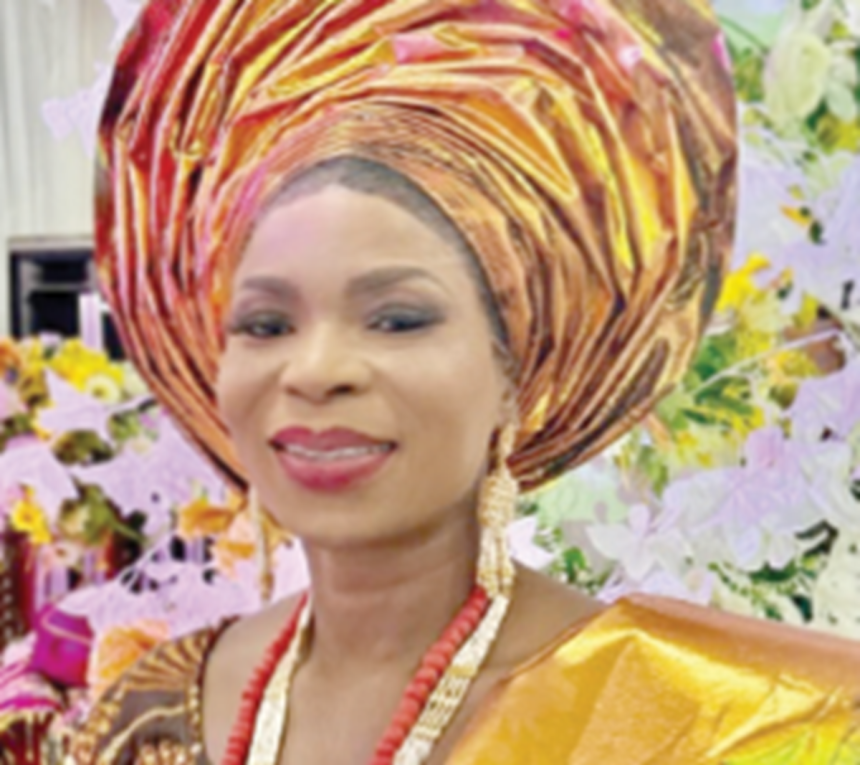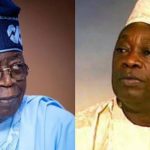Chief (Mrs) Billy Umar Garba is the Asiwaju Iyamokun of Egbaland. She has been part of the Global Peace Ambassadors for UNICEF for almost 20 years. She is the All Progressives Congress (APC) chieftain diaspora leadership in North America and Canada, and the coordinator and grassroots mobilizer in 26 states of Nigeria. She is also a committee member of various support groups for APC since 2015. In this interview, she speaks with SEGUN KASALI on her life and activities, and on women issues.
How was growing up for you?
I was born in Kogi State, grew up in Lagos, and studied Sociology and Anthropology at Obafemi Awolowo University. I started my business before graduation. I knew right away that I was not meant for the labour market. My family’s house is in Okenne Central in Kogi State. I am Ebira. I would not say I grew up in Kogi, but I did vacation a lot there. We went to festivals every end of the year. It was fun. I always looked forward to going with my parents back home. It was a religious place, comprising Muslims or Christians. They hold on to their tradition and culture. Their festival used to be a big thing.
Who was the disciplinarian between your parents?
First and foremost, my parents were not the scolding type of people. I am from a polygamous home, with 19 children and four wives. My dad was a very kind person. He is still very much alive now, but over 90 years old. We just respect him by doing the right thing. My dad never beat us, but he was a disciplinarian. He does not talk and does not need to tell you anything, but when you see him, you know what he wants and what he does not want. So, we behaved ourselves. He was the kind of person who walked into the house, and everyone just wanted to be organised and peaceful. If he dares touch the floor and feels sand, you know that he wants you to sweep it.
What role did your mother play then?
My mum was an easy-going person. She passed away in 2021. She was called a community mum because she embraced everyone. She was always giving and sharing. She was the type who would share her last meal.
What were the traits you took from them?
The attributes of giving. My dad was a community person himself. I had a lot of family in addition to my 19 immediate family. There were a lot of community boys that my dad trained in school, up to the college level. Right from a tender age, I knew what it takes to be a blessing to people and the community. My dad demonstrated that.
What did you aspire to become, or what career did you wish to go into while growing up?
I chose Jos for Law and Ife for Political Science. At the end of the day, I got into the two universities. However, within that time of going to school, Jos had, probably, its first tragic crisis where many people were killed in a community. That was the turn-off for me. We became scared, and my dad would not let me go. So, I tuned back to Ife, which was my main choice, anyway. But, because I did not choose the course I wanted directly, and did not have faith that I was going to change it, I was leaning more towards Jos, Plateau State, to go to the University of Jos, but focused on OAU, Ife, when that incident happened. But, I did not eventually get into Political Science because of some other prerequisite courses I had to take. I ended up with Sociology and Anthropology at OAU, Ife, and was glad I did.
ALSO READ FROM NIGERIAN TRIBUNE: Tinubu signs 51 out of 2,263 bills into law in two years
Why were you glad to study Sociology and Anthropology at OAU, Ife?
I was glad because it prepared me to understand human behaviour better — how society is formed, how society can grow, and our importance on earth as a people. I was glad I studied the course.
How was life in Ife?
It was great. I am very grateful for the privilege to have that education. Everything I am today, Ife is a big influence on that. I was social. I partied, studied, and made friends. So, I enjoyed myself in school. Obafemi Awolowo University was quite political, and I guess that made me who I am today, by being able to be highly opinionated and expressive.
Was there any striking experience at Ife that you would like to share with us?
The bad one was the constant Aluta. On my matriculation day, after my friends said goodbye and left, I did not sleep in Ife that night. That was the worst time of my life. I just packed all my stuff to school, did the matriculation, and set up my bed, and that same day in the evening, Aluta started, and everyone was sent out of the campus. But we did not know where to go because we were new and the university was far away from the city.
So, how did you go about it?
We ended up in Lagos. I lost a whole session because of that crisis in the school. That was terrible. I lost two years ─ technically using six years for a four-year course. That part was not fun. I was upset because I was the only one at home out of my friends in other schools. However, within that period, I decided to be creative. I looked for a job and got hired at the first financial dailies in Ogba, Lagos, while I was residing in Festac Town. I went for the interview and I was hired. That was my first major job, and I enjoyed doing it.
Luckily, eight months into that, the university called off the strike, and I went back to school. Part of my school fees was paid by Lucky Igbinedion, who was the owner of the company. He was happy that I was going back to school. He was the owner of the company, and I did my work diligently.
Do you go by any nickname?
They call me Billy Prada. I think it is because I have always been meticulous and very stylish, and I do my thing differently. I am very picky with what I eat and what I put on. I was one of the fashionistas in school then. Prada used to be my favourite. I used to wear a lot of Prada glasses then. So, my friend gave me the name, and it stuck till today.
Just recently, you were decorated as the Asiwaju Iyamokun of Egbaland. How do you feel?
First and foremost, that position did not come to me as a surprise. Like I told you, I have always been a special kind of child, resilient, and a very passionate person. I love Nigeria so much, and I see some potential in the country. Even as a little child, I have always done my bit to lift people. So, that had been part of my life. Like I said, I learnt that very early from my parents. So, it was God and what it was created to be.
Do you believe that “What a man can do, a woman can do it better?”
Yes. 100 per cent. Women are strong people, but we do not appear strong. I stand solidly for women and the girl-child. Many times, people are deceived by our looks, but God created us very special. We are goal-getters. We solve problems. So, whatever a woman wants to do, she will even do it much better.






